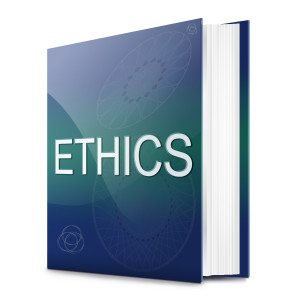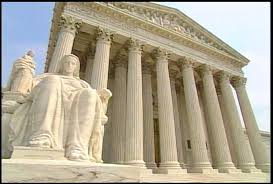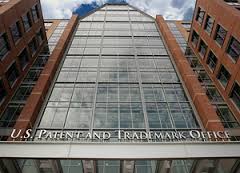 At first glance, the USPTO’s most recently published disciplinary decision seems relatively bland and altogether innocuous. The case of In re Juliet M. Oberding, Proceeding No. D2016-06 (USPTO Dir. Feb. 12, 2016) involves a California-based trademark attorney who told a client on several occasions, over the course of roughly 18 months, that the client’s trademark application was being processed by the USPTO when in fact the attorney had not yet even filed the application. The trademark application was eventually filed—two years after the attorney had been hired. For her breach of the USPTO’s ethics rules, Ms. Oberding agreed to a 60-day suspension in addition to a two-year stayed suspension.
At first glance, the USPTO’s most recently published disciplinary decision seems relatively bland and altogether innocuous. The case of In re Juliet M. Oberding, Proceeding No. D2016-06 (USPTO Dir. Feb. 12, 2016) involves a California-based trademark attorney who told a client on several occasions, over the course of roughly 18 months, that the client’s trademark application was being processed by the USPTO when in fact the attorney had not yet even filed the application. The trademark application was eventually filed—two years after the attorney had been hired. For her breach of the USPTO’s ethics rules, Ms. Oberding agreed to a 60-day suspension in addition to a two-year stayed suspension.
What is the big deal about the Oberding case? As a matter of ethics law, it is not a big deal. After all, attorneys should know that if they lie to a client, they can be disciplined and even suspended.
And as a general procedural matter, the fact that a disciplinary case was resolved by a settlement also is not groundbreaking. Indeed, attorneys who are the subject of USPTO disciplinary proceedings frequently settle rather than expend the time and resources required to litigate an administrative trial, appeal to the USPTO Director, and appeal again in federal court, all against a well-financed opponent (the U.S. Government).
What is hugely important about the Oberding settlement in particular is the fact that before she was ever disciplined by the USPTO, Ms. Oberding had already been publicly disciplined for the same ethical misconduct by the Supreme Court of California. In fact, on June 18, 2015, the State Bar Court of California recommended In the Matter of Juliet Monique Oberding, Case No. 14-O-15179 that Ms. Oberding be suspended from practice for thirty (30) days, and further that she receive a one-year stayed suspension. On November 19, 2015 the order entered by the State Bar Court was approved and entered by the Supreme Court of California
Reciprocal Discipline at the USPTO
Was it “okay” for the OED to “settle” with Ms. Oberding for twice the length of the suspension imposed by the Supreme Court of California (i.e., 60 days vs. 30 days of actual suspension, and 2 years vs. 1 year of stayed suspension)? The answer, according to the USPTO’s own Rules of Disciplinary Procedure and USPTO Director precedent, is “No.”
 Both the discipline imposed by the USPTO, as well as the procedure the USPTO employed in Ms. Oberding’s case, violated the USPTO’s rules for “reciprocal discipline” codified at 37 C.F.R. § 11.24.
Both the discipline imposed by the USPTO, as well as the procedure the USPTO employed in Ms. Oberding’s case, violated the USPTO’s rules for “reciprocal discipline” codified at 37 C.F.R. § 11.24.
Title 37, Section 11.24(a) states in relevant part as follows:
Within thirty days of being publicly censured, publicly reprimanded, subjected to probation, disbarred or suspended by another jurisdiction . . . . a practitioner subject to the disciplinary jurisdiction of the Office shall notify the OED Director in writing of the same . . . Upon receiving notification from any source or otherwise learning that a practitioner subject to the disciplinary jurisdiction of the Office has been so publicly censured, publicly reprimanded, subjected to probation, disbarred, [or] suspended, the OED Director shall obtain a certified copy of the record or order regarding the [public discipline] and file the same with the USPTO Director. The OED Director shall, in addition, without Committee on Discipline authorization, file with the USPTO Director a complaint complying with § 11.34 against the practitioner predicated upon the [public discipline]. The OED Director shall request the USPTO Director to issue a notice and order as set forth in paragraph (b) of this section.
This is all the OED Director is allowed to do.
Thus the rules of the USPTO are clear that when the OED Director either learned from Ms. Oberding, or from any source, that she had been suspended by California, the OED Director was required (“shall”) to file with the USPTO Director, pursuant to 37 C.F.R. § 11.24(a), a complaint for reciprocal discipline, without involvement of the Committee on Discipline. The OED Director also was required (“shall”) to request the USPTO Director to serve Ms. Oberding with a notice and order required by 37 C.F.R. § 11.24(b). The OED Director failed to follow this mandatory process.
As a result, the USPTO Director failed to discharge the equally mandatory duties (“shall”) required by 37 C.F.R. § 11.24(b), which included requiring the USPTO Director to serve Ms. Oberding with a copy of the public discipline imposed by California, a copy of the complaint for reciprocal discipline, and an order to show cause within forty days establishing a genuine issue of material fact, predicated on limited grounds set forth in 37 C.F.R. § 11.24(d), why “imposition of the identical . . . suspension” would be unwarranted. If Ms. Oberding failed within forty days to issue a response to the show cause order, or the response to the show cause order failed to raise a genuine issue of material fact as to why the “identical” discipline should not be imposed by the USPTO, then Section 11.24 should have required the USPTO to impose the identical discipline that was already imposed for the same conduct by the California Supreme Court.
Unfortunately, none of these mandatory procedures were followed in Ms. Oberding’s case. Accordingly, the OED Director and USPTO Director failed to follow the USPTO’s own rules when the Office “settled” with Ms. Oberding for twice the maximum discipline she should have faced had the Office actually followed its rules.
No Right Of OED To “Choose” Whether to Follow Reciprocal Discipline Rules
The OED has asserted that when a practitioner is publicly disciplined by another jurisdiction, the OED has a “choice” whether to follow 37 C.F.R. § 11.24 or can choose to treat the matter as if there had been no other prior adjudication and seek non-reciprocal discipline. No USPTO rule provides the OED Director with any such “choice.” On the contrary, accepting the OED’s interpretation of Title 37, Section 11.24 as “discretionary” renders the entirety of Section 11.24 and its mandatory “shall” language, nugatory. Anderson v. Yungkau, 329 U.S. 482, 485 (1947) (“shall” is “mandatory”). It is a commonplace tenet of statutory construction that regulations should not be interpreted to render any provision mere surplusage or meaningless–but that is precisely what the OED Director purports to do in claiming Section 11.24 is a “discretionary” process which the OED Director may, in his unfettered discretion, follow or not follow.
In matters where there has been no prior adjudication by another tribunal, then, pursuant to 37 C.F.R. § 11.22, the OED Director may conduct an investigation and upon conclusion of the investigation, the OED Director has wide latitude to either: (1) close the investigation without taking any disciplinary action; (2) issue a non-disciplinary “warning” to the practitioner; (3) institute formal disciplinary charges upon a finding of probable cause by a type of USPTO Grand Jury referred to as the “Committee on Discipline; or (4) enter into a settlement agreement with the practitioner. But these broad rights have no applicability where the practitioner has already been disciplined. In such a case, the specific provisions of Section 11.24, which specifically apply whenever a practitioner has been publicly disciplined elsewhere, trump any general rights granted in other sections of the USPTO’s rules.
 The OED’s “position” that the OED has a “choice” whether to follow or not follow 37 C.F.R. § 11.24 is contradicted by the plain language of Section 11.24. See Caraco Pharm. Labs., Ltd. v. Novo Nordisk A/S, 132 S. Ct. 1670, 1680 (2012) (“statutory construction begins with the language of the statute.”)
The OED’s “position” that the OED has a “choice” whether to follow or not follow 37 C.F.R. § 11.24 is contradicted by the plain language of Section 11.24. See Caraco Pharm. Labs., Ltd. v. Novo Nordisk A/S, 132 S. Ct. 1670, 1680 (2012) (“statutory construction begins with the language of the statute.”)
Once the OED learned about Ms. Oberding’s 30-day actual suspension and one-year stayed suspension, the OED Director had no choice but to follow the mandatory (“shall”) process codified in 37 C.F.R. § 11.24(a), which required that “[u]pon receiving” notice of Ms. Oberding’s suspension, the OED Director: (1) “shall” obtain and file a certified copy of the California disciplinary order with the USPTO Director; (2) “shall, in addition, without Committee on Discipline authorization, file with the USPTO Director a complaint” against Ms. Oberding “predicated on” the California suspension; and (3) “shall request the USPTO Director to issue a notice and order” as provided by § 11.24(b). See 37 C.F.R. § 11.24(a). The OED Director evidently ignored these unambiguous commands and failed to file with the USPTO Director a certified copy of the California order, or a complaint predicated on the California suspension, or a request for the USPTO Director to issue the notice and order mandated by § 11.24(b). See Vitarelli v. Seaton, 359 U.S. 535, 546 (1959) (administrative agency “must be rigorously held to the standards by which it professes its action to be judged.”)
Ironically, while the OED is in the business of enforcing its ethics rules, it appears to have given itself a pass in this case. Such conduct violates Supreme Court precedent, which holds that, “It is a familiar rule of administrative law that an agency must abide by its own regulations.” Ft. Stewart Sch. v. Fed. Labor Relations Auth., 495 U.S. 641, 654 (1990)
Furthermore, as it applied to the proceeding against Ms. Oberding, § 11.24(d) directed that the USPTO Director: (1) “shall hear the matter on the documentary record unless the USPTO Director determines that an oral hearing is necessary;” (2) “shall” consider any timely-filed response; and (3) “shall impose the identical” one-month suspension and one year stayed suspension unless “the USPTO Director finds” any response submitted by Ms. Oberding presented a genuine issue of material fact on one or more of the issues in § 11.24(d)(1)(i)-(d)(1)(iv)–which essentially limit the practitioner to arguing that she was denied due process or there was an “infirmity of proof” in the other jurisdiction’s adjudication, or that imposition of “identical” discipline in the USPTO would result in “grave injustice. These are quite narrow issues and, in fact, no practitioner in USPTO disciplinary history has ever succeeded in raising them.
If the USPTO Director determined no genuine issue of material fact was raised by Ms. Oberding’s response to the Section 11.24(b) show cause order, then “the USPTO Director shall enter an appropriate final order.” 37 C.F.R. § 11.24(d)(2). If the USPTO Director determined a genuine fact issue was raised, then “the USPTO Director shall” refer for hearing any genuine disputed facts. See 37 C.F.R. § 11.24(d)(2).
In the case of Ms. Oberding, this entire mandatory process and procedure was ignored. See Reuters, Ltd. v. FCC, 781 F.2d 946, 950-51 (D.C. Cir. 1986) (“Simply stated, rules are rules, and fidelity to the rules which have been properly promulgated, consistent with applicable statutory requirements, is required of those to whom Congress has entrusted the regulatory missions of modern life.”). By failing to follow 37 C.F.R. § 11.24, the OED Director denied Ms. Oberding the rights, protections, and benefits afforded under § 11.24, in violation of fundamental administrative agency law principles. See, e.g., Teleprompter Cable Sys., Inc. v. FCC, 543 F.2d 1379, 1387 (D.C. Cir. 1976) (“an agency must adhere to its own rules and regulations. Ad hoc departures from those rules [] cannot be sanctioned.”).
 The Selling Case and Its Progeny
The Selling Case and Its Progeny
The USPTO Director has repeatedly emphasized that the standards codified in § 11.24 “were set forth early in the last century for imposing professional discipline based on a state’s disciplinary adjudication.” In re Haigh, No. D2009-05 (USPTO Dir. Aug. 3, 2009); In re Lilling, No. D2009-21, at 3 (USPTO Dir. Oct. 26, 2009) (same). The Director has explained that the legal rationale underlying reciprocal discipline was described by the Supreme Court in Selling v. Radford, 243 U.S. 46 (1917). See In re Portner, No. D2011-44, at 4 (USPTO Dir. June 22, 2012) (acknowledging § 11.24 based on Selling).
Selling involved an attorney disbarred in Michigan. Id. at 47. The Solicitor General sought the attorney’s disbarment from the Supreme Court based on the Michigan disbarment. Id. The Supreme Court observed the loss of an attorney’s right to practice in one jurisdiction “must in the nature of things furnish adequate reason in every jurisdiction for taking away the right to continue to be a member of the Bar in good standing.” Id. at 49. The Court explained, “we have no authority to re-examine or reverse as a reviewing court the action of the Supreme Court of Michigan.” Id. at 50. The Court concluded it “should recognize the condition created by the judgment of the state court” unless: (1) the attorney was denied due process in the state proceeding; (2) the other proceeding suffered from an infirmity of proof; or (3) imposing the same discipline would result in grave injustice. Id. at 51. Since Selling was decided, “every state in the country has [adopted] a ‘reciprocal’ discipline rule.” Attorney Grievance Comm’n of Md. v. Whitehead, 390 Md. 663, 680 n.12 (2006) (surveying reciprocal discipline rules).
USPTO Director Precedent States Reciprocal Discipline Mandatory
The USPTO adopted § 11.24 on September 15, 2008. Since then, the USPTO Director has uniformly interpreted and applied § 11.24, consistent with its plain meaning, in approximately 90 published decisions. In each of those decisions, the USPTO Director: (i) followed the process in § 11.24; and (ii) imposed identical discipline to what was imposed by the other jurisdiction. See Atchison, T. & S. F. R. Co. v. Wichita Bd. of Trade, 412 U.S. 800, 807-08 (1973) (a “settled course of behavior embodies the agency’s informed judgment that, by pursuing that course, it will carry out the policies committed to it by Congress.”).
 The USPTO Director has never held in any decision that a “choice” exists to follow, or not follow, § 11.24 when a practitioner is publicly disciplined by another jurisdiction. Rather, USPTO Director precedent holds § 11.24 prohibits de novo proceedings and provides for “narrow” review of limited issues. See In re Brufsky, No. D2013-12, at 3 (USPTO Dir. Feb. 4, 2014) (holding standard under Selling is “narrow” and that the USPTO Director is “not sitting as a court of review to discover errors in the [hearing judge’s] . . . proceedings.’”) (citing In re Zdravkovich, 634 F.3d 574, 578 (D.C. Cir. 2011)); see also In re Shippey, No. D2012-02, at 6 (USPTO Dir. June 11, 2012) (explaining 37 C.F.R. § 11.24 provides “no entitlement to a de novo review” of the state disciplinary proceeding and the USPTO’s review is “‘extremely limited’”) (citations omitted).
The USPTO Director has never held in any decision that a “choice” exists to follow, or not follow, § 11.24 when a practitioner is publicly disciplined by another jurisdiction. Rather, USPTO Director precedent holds § 11.24 prohibits de novo proceedings and provides for “narrow” review of limited issues. See In re Brufsky, No. D2013-12, at 3 (USPTO Dir. Feb. 4, 2014) (holding standard under Selling is “narrow” and that the USPTO Director is “not sitting as a court of review to discover errors in the [hearing judge’s] . . . proceedings.’”) (citing In re Zdravkovich, 634 F.3d 574, 578 (D.C. Cir. 2011)); see also In re Shippey, No. D2012-02, at 6 (USPTO Dir. June 11, 2012) (explaining 37 C.F.R. § 11.24 provides “no entitlement to a de novo review” of the state disciplinary proceeding and the USPTO’s review is “‘extremely limited’”) (citations omitted).
The USPTO Director has repeatedly confirmed that the reciprocal discipline process codified in § 11.24 must be followed. See In re Conners, No. D2011-55, at 3 (USPTO Dir. May 30, 2012) (“[w]hen a practitioner subject to the disciplinary jurisdiction of the Office is disciplined by another jurisdiction, the USPTO Director is required to impose reciprocal discipline that is identical to the discipline imposed by the other jurisdiction” pursuant to 37 C.F.R. § 11.24). No contrary authority exists. See, e.g., In re Shippey, No. D2012-02, at 7 (USPTO Dir. June 11, 2012) (“§ 11.24 requires reciprocal discipline when a practitioner before the office is censured, publicly reprimanded, subject to probation, disbarred or suspended by another jurisdiction.”). Moreover, the USPTO Director has explained that, “unless Respondent clearly and convincingly demonstrates, and the USPTO Director finds there is a genuine issue of material fact, as to the standards identified in 37 C.F.R. § 11.24(d),” reciprocal discipline must be imposed. See id. at 6; see also In re Portner, No. D2011-44, at 5 (USPTO Dir. June 22, 2012) (ordering reciprocal discipline and holding, “The Office reiterates that, to prevent the imposition of reciprocal discipline, Respondent is required to demonstrate that he meets one of these [§11.24(d)] factors”); In re Haigh, No. D2009-05, at 6-22 (USPTO Dir. Aug. 3, 2009) (holding practitioner failed to raise genuine issue of material fact under § 11.24(d) and imposing identical suspension); In re Webb, No. D2014-35, at 1-2 (USPTO Dir. Mar. 13, 2015) (same).
The USPTO Director’s unwavering interpretation of § 11.24 confirms that neither the OED Director, nor the USPTO Director, had any “choice” when it came to what to do upon receiving notice of Ms. Oberding’s 30-day California suspension. Neither the USPTO Director nor the OED Director had any right to dismiss the action without discipline, or to issue a non-disciplinary warning, or to enter into a settlement agreement, or to convene the Committee on Discipline, as might occur if another jurisdiction had not already imposed discipline. Where, as here, California had already spoken and issued its 30-day suspension and one-year stayed suspension, both the OED Director and the USPTO Director were required to follow §11.24, and thus 30 days was the maximum penalty Ms. Oberding should have received from the Office. See Christopher v. SmithKline Beecham Corp., 132 S. Ct. 2156, 2166-67 (2012) (regulated parties should be able to “conform their conduct to an agency’s interpretations once the agency announces them” and should not be forced to “divine” a new interpretation announced “for the first time in an enforcement proceeding.”).
One might then ask – why did Ms. Oberding agree to settle on such disadvantageous terms with the OED? We cannot tell from the public record, and the communications between the OED and Ms. Oberding are confidential pursuant to the federal Privacy Act. But one such reason may be that Ms. Oberding (who was without legal counsel in the matter) did not recognize the issue. It is also possible that she recognized the issue but did not have the time, energy, or resources to fight the USPTO.
Takeaways from Oberding – Caveat Practitioner
 The biggest teaching point from Oberding is the OED’s failure to follow the USPTO’s regulations. Don’t think the OED or the attorneys who represent its interests in litigation are going to be looking out for legal issues that a practitioner might raise, or that the USPTO’s rules require.
The biggest teaching point from Oberding is the OED’s failure to follow the USPTO’s regulations. Don’t think the OED or the attorneys who represent its interests in litigation are going to be looking out for legal issues that a practitioner might raise, or that the USPTO’s rules require.
The OED’s disregard for Section 11.24 in the Oberding matter should be disconcerting to any practitioner who is facing discipline in another jurisdiction and who is also subject to discipline by the USPTO. Often patent practitioners are less concerned about state bar discipline because many patent attorneys practice exclusively before the USPTO. Thus, if they lose their state bar license, they may still be able to practice before the USPTO–that is, unless and until the USPTO takes away that right, via reciprocal discipline.
When negotiating a settlement with state bar counsel or otherwise attempting to resolve a state disciplinary action, practitioners must be mindful regarding how the resolution of their matter before another jurisdiction will impact their ability to practice before the USPTO.
Moreover, practitioners facing discipline by a state bar should not be forced to guess whether or when the OED will decide to follow or not follow 37 C.F.R. § 11.24. If a state bar imposes a reprimand, for example, then the worst case scenario the practitioner should face before the USPTO is an identical public reprimand and not something worse, like a suspension. A state disciplined practitioner should be able to rely upon the plain language of Section 11.24, as well as the USPTO Director’s own precedent, in predicting how resolution of a state bar disciplinary case will be treated by the USPTO.
 By ignoring the plain language of Section 11.24 as well as USPTO Director precedent, and imposing via a “settlement” twice the amount of discipline Ms. Oberding should have faced had the OED followed the USPTO’s own rules, the OED “frustrated the notice and predictability purposes of rulemaking.” Talk America, Inc. v. Michigan Bell Tele. Co., 131 S. Ct. 2254, 2256 (2011) (Scalia, J., concurring). Plainly, professional discipline affects individual rights, and the regulations of the USPTO, consistent with the Administrative Procedures Act, must avoid “inherently arbitrary” and “ad hoc determinations. See Morton v. Ruiz, 415 U.S. 199, 232 (1974).
By ignoring the plain language of Section 11.24 as well as USPTO Director precedent, and imposing via a “settlement” twice the amount of discipline Ms. Oberding should have faced had the OED followed the USPTO’s own rules, the OED “frustrated the notice and predictability purposes of rulemaking.” Talk America, Inc. v. Michigan Bell Tele. Co., 131 S. Ct. 2254, 2256 (2011) (Scalia, J., concurring). Plainly, professional discipline affects individual rights, and the regulations of the USPTO, consistent with the Administrative Procedures Act, must avoid “inherently arbitrary” and “ad hoc determinations. See Morton v. Ruiz, 415 U.S. 199, 232 (1974).
Requiring the OED Director and USPTO Director to follow § 11.24 gives “fair notice to those [the rule] is intended to deter” and avoids “the possibility of discriminatory enforcement.” Gentile v. State Bar of Nevada, 501 U.S. 1030, 1082 (1991) (O’Connor, J., concurring). Indeed, a USPTO practitioner facing discipline in another jurisdiction is entitled to notice of how such other discipline could affect his right to practice before the Office. Such practitioners should not be left to guess what ad hoc “process” the OED Director might “choose” upon learning that a practitioner has been disciplined by another jurisdiction. See id. at 1048 (disciplinary statute void where “a lawyer seeking to avail himself of [the rule’s] protection must guess at its contours”); In re Thalheim, 853 F.2d 383, 390 (5th Cir. 1988) (“attorneys have the right to rely upon the rules. A court cannot ignore and circumvent its rules at will to the detriment of those covered by them.”).
It is unknown whether Ms. Oberding can undo the settlement agreement and seek the remedies – including the mandatory process and maximum discipline – provided pursuant to 37 C.F.R. § 11.24. It may be that, in her case, the “ship has already sailed.” But whatever her options, future practitioners should learn from this case. Practitioners who are subject to the disciplinary jurisdiction of the USPTO and who are publicly disciplined by a state bar should be entitled to the process and substantive rights afforded by the USPTO’s rule on reciprocal discipline.